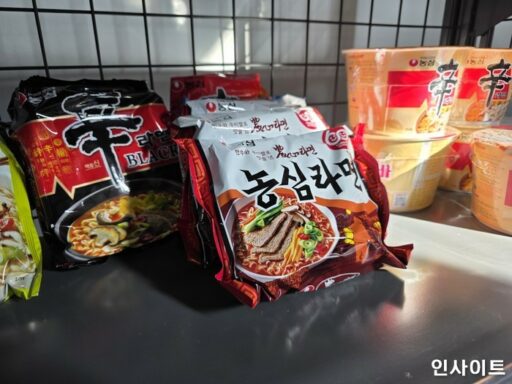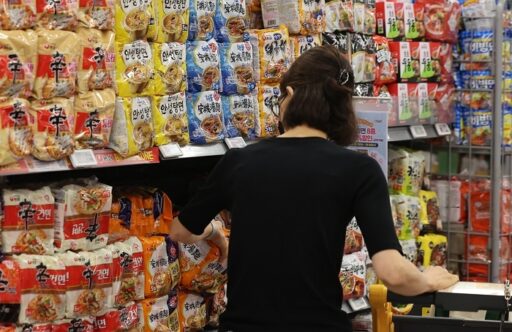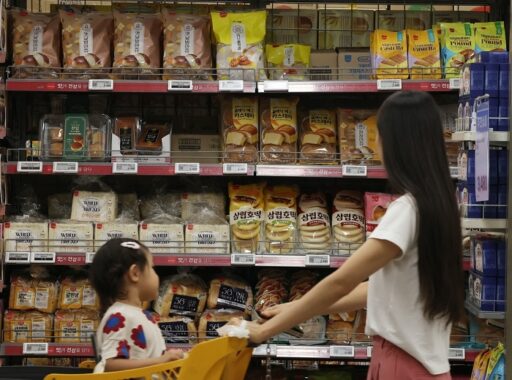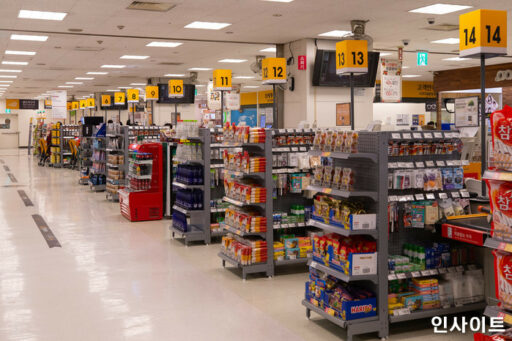Increase in Processed Food Prices… Noodles, Kimchi, and Coffee Discounted by Up to 50%
The government is partnering with the retail industry to stabilize the prices of processed foods. Massive discount events, reducing prices by up to 50% on key items such as noodles, kimchi, and coffee, will take place in large supermarkets and convenience stores nationwide throughout the month of July.
On July 4th, the Ministry of Agriculture, Food and Rural Affairs officially announced a high-intensity discount plan targeting the summer peak season during a meeting with the food and retail industries.

Last month, the price of processed foods increased by 4.6% compared to the same period last year, more than double the overall consumer price inflation rate of 2.2%. With major food items such as noodles (6.9%), kimchi (14.2%), and coffee (12.4%) experiencing sharp price hikes, the government decided to take "direct action."
Diverse '1+1' and '2+1' Promotions for Noodles… Bakeries Also Offering Discounts
Nongshim is discounting major noodle products by at least 16% and up to 43% at large supermarkets, while holding a '2+1' event at convenience stores.
Ottogi is reducing prices on some noodles by 10-20% and is also running '1+1' and '2+1' promotions at convenience stores. Paldo is selling selected popular noodle products with discounts of up to 50%, focusing on promotions at large supermarkets.
SPC is offering bakery products such as bread and hotteok at discounts of up to 50%, and Dongseo Food is reducing stick and canned coffee prices by up to 40%. CJ CheilJedang and Daesang are discounting kimchi by 30-35% for both online and offline sales.

Convenient summer meals like cold noodles, samgyetang (chicken soup), and bibim ramen are also included in the discount offerings. Most discount events will continue until the end of July, while some limited items will only be available until mid-month.
Soaring Raw Material Prices… Urgent Structural Response Needed
The government plans to approach the stabilization of processed food prices as a structural issue, rather than a one-time measure. According to the Ministry of Agriculture, Food and Rural Affairs, raw material prices such as cocoa ($9,600 per ton) and robusta coffee ($4,190) remain high. However, the prices of palm oil and sugar have shown signs of stabilization, easing some of the burden.
The government announced measures to suppress price increases through the exemption of value-added tax on coffee and cocoa imports, tariff quotas on 21 key raw materials, and expanded funding for raw material purchases.
"To sustain the effects of the discounts, structural measures must be implemented in parallel."

The Ministry of Agriculture, Food and Rural Affairs plans to closely monitor price trends even after August and to continue negotiations for additional discounts with the industry. "We aim to ensure that consumers can feel that their shopping baskets are lighter," the ministry explained.
However, there are concerns within the industry that the effects may be temporary. A source in the food industry stated, "There are still complex cost-increasing factors such as labor costs, logistics costs, and energy prices. The government's detailed follow-up response is necessary for this discount to lead to actual price stabilization."

Image source: Photo=Insight, News1


